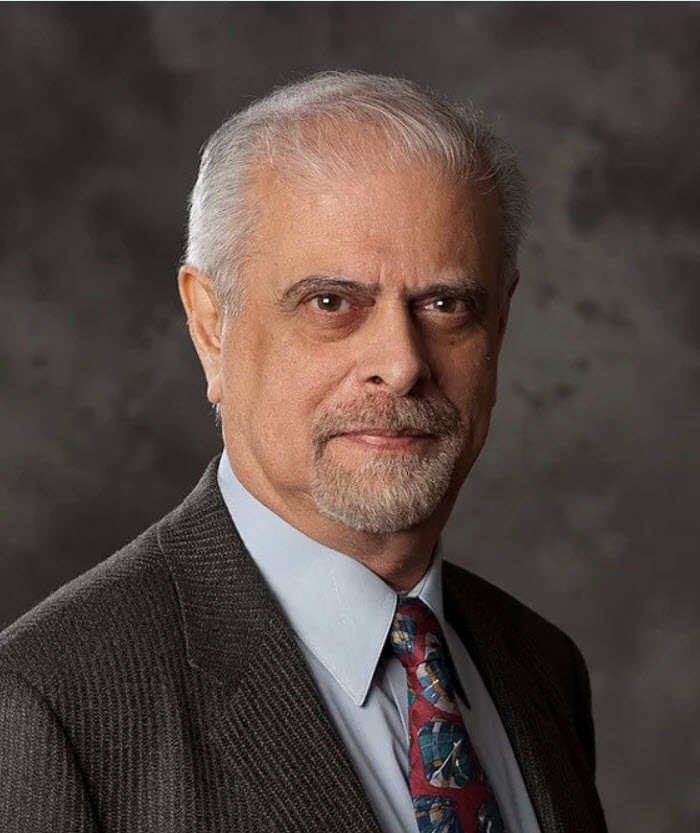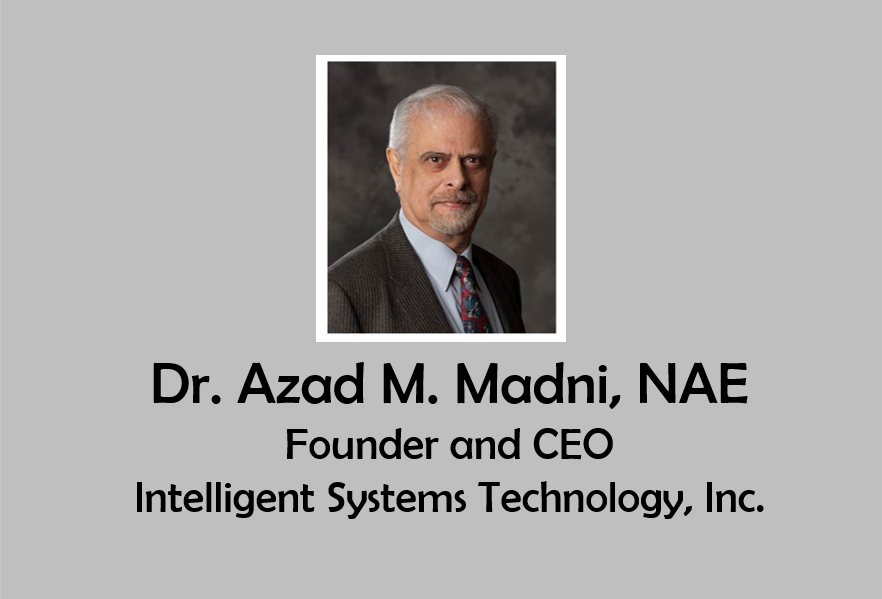About The 4-Course Series: Systems Engineering for 21st Century Engineering Executives and Senior Managers
Courses offered in this series:
• Augmented Intelligence and Human-AI Collaboration
• Transdisciplinary Systems Engineering
• Intelligent Digital Twinning
• Engineered Resilient Systems: Key Concepts and Tradeoffs
Who are these courses for?
These courses are specifically directed to engineering executives, senior managers, and systems engineering decision-makers and their teams in the aerospace, defense, automotive, and medical devices industries, as well as representatives of original equipment manufacturers (OEMs). It will help with problem framing, innovative approaches to problem solving, and operational and manufacturing systems and process optimization. The courses are based on TRASEE™, the 2023 NAE Gordon Prize winning educational framework created by Dr. Azad Madni. TRASEE exploits pedagogical principles from the learning sciences, storytelling principles from the entertainment arts, convergence of engineering with other disciplines as defined by transdisciplinary systems engineering, and hands-on learning opportunities to enhance the learning experience.
What you will learn.
You will learn a new mindset needed to address 21st century engineering challenges, and ways in which models, model-based and storytelling approaches, digital twins, simulations and virtual worlds can be leveraged to address the needs of distributed collaborative engineering teams.
After you have taken the 4 courses, you will:
• Understand what makes systems complex, and how such systems can be modeled and analyzed using transdisciplinary systems thinking.
• Be able to frame problems from multiple perspectives, develop system architectures that address the requisite perspectives, and develop models and stories to enhance collaborative decision-making in system development and analysis.
• Be able to develop digital twins of relatively simple real-world systems and processes, and analyze them from various perspectives (e.g. operations, maintenance)
• Apply acquired knowledge in connected form to new problems and problem contexts
Instructional Team
Azad M. Madni, Ph.D., NAE
Instructor and Course Developer; inventor of TRASEE™, NAE Gordon Prize winning education framework.
Dr. Azad Madni is the founder and CEO of Intelligent Systems Technology, Inc., a company specializing in conducting research in Augmented Intelligence and Digital Twinning and their role in Systems Engineering, Advanced Manufacturing and Healthcare, performing commissioned studies for aerospace and automotive companies (e.g., safety and resilience of autonomous systems), educating corporate executives and engineering leaders and managers in the latest technological advances and their implications for systems engineering and enterprise competitiveness. He holds the title of University Professor at the University of Southern California. This prestigious honor is bestowed on faculty who have made significant contributions in multiple disciplines and whose work has broad interdisciplinary impact. He pioneered transdisciplinary systems engineering (TSE), formalizing it in his award-winning book, Transdisciplinary Systems Engineering: Exploiting Convergence in a Hyperconnected World (2018), and operationalizing it within TRASEE™, a transdisciplinary engineering education framework, that enables the incorporation and exploitation of relevant core concepts from other disciplines into systems engineering courses, thereby breaking down course silos. He is the co-author of Tradeoff Decisions in Systems Design (Springer, 2018), and Deep Learning Networks: Design, Development, and Deployment (Springer, 2023). In 2023, the National Academy of Engineering (NAE) honored him with its prestigious Bernard M. Gordon Prize for Innovation in Engineering and Technology Education. In the same year, the IEEE honored him with its prestigious Simon Ramo Medal for exceptional achievements in systems engineering and systems science. A member of the NAE, he is an Honorary Fellow of AIAA, Life Fellow of INCOSE, Life Fellow of IEEE, Honorary Member of ASME, Fellow of AAAS, Fellow of ACM, Fellow of IISE, Fellow of AIMBE, Fellow of SME, and several others. He is the Chief Systems Engineering Advisor to The Aerospace Corporation. He received his Ph.D., M.S., and B.S. degrees in Engineering from UCLA. He is a graduate of AEA/Stanford Executive Institute program for senior technology executives.Transdisciplinary Systems Engineering, MBSE, Digital Twinning, Augmented Intelligence, Green Learning, Interactive Storytelling in Virtual Worlds
Edwin Ordoukhanian, Ph.D.
Instructor and Demonstrations Developer
INCOSE Foundation and Stevens Institute of Technology Doctoral Award for Outstanding Dissertation, OCEC Outstanding Engineering Student Award, Exceptional Performer for Conference on Systems Engineering Research, and others. Member of INCOSE and SAE A-5 Committee. MBSE, System Modeling and Digital Twin, Simulation, Virtual Worlds, Testbed Engineering
Engineering
Carla C. Madni, M.S., Engineering
Executive Education Director
Member, IEEE, Human Factors and Ergonomics Society, and Society of Women Engineers; Developer of the Year from Software Council of Southern California, Blue Chip Enterprise Award, Deloitte and Touche Fast 50 (four consecutive years); Deloitte and Touche Technology Fast 500 (2 consecutive years) Human-Systems Integration, Distributed AI, Intelligent User Interface Design, Program Management




